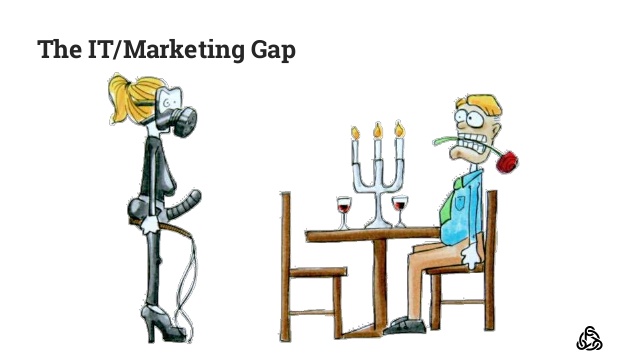TODAY, TOMORROW, AND EVERYDAY- THE TRENDY DIGITAL MARKETING
DIGITAL BRANDING
Digital marketing is an umbrella term for all of your online marketing efforts.
Digital marketing, the promotion of products or brands via one or more forms of electronic media, differs from traditional marketing in that it uses channels and methods that enable an organization to analyse marketing campaigns and understand what is working and what isn’t typically in real time.
Digital marketers monitor things like what is being viewed, how often and for how long, sales conversions, what content works and doesn’t work, etc. While the Internet is, perhaps, the channel most closely associated with digital marketing, others include wireless text messaging, mobile instant messaging, mobile apps, podcasts, electronic billboards, digital television and radio channels, etc.
Why Digital Marketing is Important?
Digital media is so pervasive that consumers have access to information any time and any place they want it. Gone are the days when the messages people got about your products or services came from you and consisted of only what you wanted them to know. Digital media is an ever-growing source of entertainment, news, shopping and social interaction, and consumers are now exposed not just to what your company says about your brand, but what the media, friends, relatives, peers, etc., are saying as well. And they are more likely to believe them than you. People want brands they can trust, companies that know them, communications that are personalized and relevant, and offers tailored to their needs and preferences.
The reality is, people spend twice as much time online as they used to 12 years ago. And while we say it a lot, the way people shop and buy really has changed, meaning offline marketing isn’t as effective as it used to be.
Marketing has always been about connecting with your audience in the right place and at the right time. Today, that means that you need to meet them where they are already spending time: on the internet.
Challenges faced by digital marketers
- Proliferation of digital channels. Consumers use multiple digital channels and a variety of devices that use different protocols, specifications and interfaces – and they interact with those devices in different ways and for different purposes.
- Intensifying competition. Digital channels are relatively cheap, compared with traditional media, making them within reach of practically every business of every size. As a result, it’s becoming a lot harder to capture consumers’ attention.
- Exploding data volumes. Consumers leave behind a huge trail of data in digital channels. It’s extremely difficult to get a handle on all that data, as well as find the right data within exploding data volumes that can help you make the right decisions.
10 reasons why you may need a digital channel strategy?
1. You’re directionless
I find that companies without a digital strategy (and many that do) don’t have clear strategic goals for what they want to achieve online in terms of gaining new customers or building deeper relationships with existing ones. And if you don’t have goals you likely don’t put enough resources to reach the goals and you don’t evaluate through analytics whether you’re achieving those goals.
2. You won’t know your online market share
Customer demand for online services may be underestimated if you haven”t researched this. Perhaps, more importantly, you won’t understand your online marketplace: the dynamics will be different to traditional channels with different types of customer profile and behaviour, competitors, propositions and options for marketing communications. See online marketplace methodology post.
3. Existing and start-up competitors will gain market share
If you’re not devoting enough resources to digital marketing or you’re using an ad-hoc approach with no clearly defined strategies, then your competitors will eat your digital lunch!
4. You don’t have a powerful online value proposition
A clearly defined online customer value proposition will help you differentiate your online service encouraging existing and new customers to engage initially and stay loyal.
5. You don’t know your online customers well enough
It’s often said that digital is the “most measurable medium ever”. But Google Analytics and similar will only tell you volumes of visits, not the sentiment of visitors, what they think. You need to use other forms of website user feedback tools to identify your weak points and then address them.
6. You’re not integrated (“disintegrated”)
It’s all too common for digital marketing activities to be completed in silos whether that’s a specialist digital marketer, sitting in IT or a separate digital agency. It’s easier that way to package digital marketing into a convenient chunk. But of course it’s less effective. Everyone agrees that digital media work best when integrated with traditional media and response channels.
7. Digital doesn’t have enough people/budget given its importance
Insufficient resource will be devoted to both planning and executing e-marketing and there is likely to be a lack of specific specialist e-marketing skills which will make it difficult to respond to competitive threats effectively.
8. You’re wasting money and time through duplication
Even if you do have sufficient resource it may be wasted. This is particularly the case in larger companies where you see different parts of the marketing organization purchasing different tools or using different agencies for performing similar online marketing tasks.
9. You’re not agile enough to catch up or stay ahead
If you look at the top online brands like Amazon, Dell, Google, Tesco, Zappos, they’re all dynamic – trialling new approaches to gain or keep their online audiences.
10 You’re not optimizing
Every company with a website will have analytics, but many senior managers don’t ensure that their teams make or have the time to review and act on them. Once a strategy enables you to get the basics right, then you can progress to continuous improvement of the key aspects like search marketing, site user experience, email and social media marketing. So that’s our top 10 problems that can be avoided with a well thought through strategy. What have you found can go right or wrong?



